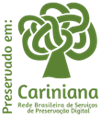Mediación de la información en el proceso de equidad y empoderamiento de las mujeres en las organizaciones
DOI:
https://doi.org/10.62758/re.v2i4.125Palabras clave:
Empoderamiento de la Mujer, Género, Mediación de la Información, OrganizaciónResumen
La discusión sobre las relaciones en la sociedad va más allá de los tiempos históricos y fomenta confrontaciones en las relaciones actuales, en ese argumento está la discusión de la presencia de las mujeres en las organizaciones como espacios de trabajo. En ese contexto, el tema de esta investigación es la Mediación de la Información, visando la información para el empoderamiento de las mujeres en las organizaciones, así como el enfrentamiento de las desigualdades de género en las organizaciones. Con alcance global porque se trata de la presencia de la mujer en la sociedad, hay discusiones. en diversos campos del conocimiento, esta investigación alinea la Ciencia de la Información con el objetivo de la discusión de la mujer en la sociedad y la información como motor de la deconstrucción de las desigualdades, para lo cual la pregunta es: ¿cómo impulsar la información en el proceso de equidad y empoderamiento de las mujeres en organizaciones? Tal cuestionamiento ocurre considerando el proceso de construcción social e histórica de la mujer en la sociedad, así como las diferencias socioculturales en el proceso de construcción de los individuos en la sociedad que delimitan espacios de acuerdo a la identidad de género de la persona. La investigación tiene como objetivo abordar el proceso de Mediación de la Información en el contexto de la igualdad de género en las organizaciones contemporáneas. Se trata de una investigación finalizada de carácter interpretativo, de carácter cualitativo, de tipo descriptivo y documental, y el documento de análisis es la lista de Igualdad de Género de Bloomberg (2021). Los datos son tratados a partir del Análisis de Contenido con la técnica de Análisis Categoría/Categoría e interpretados a la luz de la Mediación de la Información, demostrando la importancia de la discusión sobre la información en el empoderamiento de la mujer en la sociedad.
Citas
Almeida Júnior, O. F. de. Mediação da Informação d Múltiplas Linguagens. Pesq. bras. Ci. Inf., Brasília, v.2, n.1, p.89-103, jan./dez. 2009. Disponível em: https://brapci.inf.br/_repositorio/2010/01/pdf_9aa58ba510_0007871.pdf>. Acesso em: 05/10/2022.
Almeida Júnior, O. F. de. Mediação da informação: um conceito atualizado. In: BORTOLIN, S.; SANTOS NETO, J. A dos.; SILVA, R. J. da (Orgs.). Mediação oral da informação e da leitura. Londrina: ABECIN, 2015.
Araújo, C. A. A. Arquivologia, biblioteconomia, museologia e ciência da informação: o diálogo possível. Brasília: Briquet de Lemos, 2014. 200p.
Bardin, L. Análise de conteúdo. Lisboa: Edições 70, 1977.
Barboza, R. & Silva, A. S. da. Diversidade sexual, gênero e exclusão social na produção da consciência política de travestis. Revista Athenea Digital, n. 8, p. 27-49, 2005.
Bloomberg. Bloomberg’s 2021 gender-equality index reveals increased disclosure as companies reinforce commitment to inclusive workplaces. (2021). Disponível em: https://www.bloomberg.com/company/press/bloombergs-2021-gender-equality-index-reveals-increased-disclosure-as-companies-reinforce-commitment-to-inclusive-workplaces. Acesso em: 29 jul. 2022.
CEPAL (2021). La autonomía económica de las mujeres en la recuperación sostenible y con igualdad. Disponível em: https://www.cepal.org/es/publicaciones/46633-la-autonomia-economica-mujeres-la-recuperacion-sostenible-igualdad. Acesso em: 29 jul. 2022.
Capurro, R. & Hjørland, B. O conceito de informação. Perspectiva em Ciência da Informação, v. 12, n. 1, p. 148-207, jan./abr. 2007. Disponível em: https://www.brapci.inf.br/index.php/res/v/33134. Acesso em: 05 out. 2022. DOI: https://doi.org/10.1590/S1413-99362007000100012
Costa, A. A. Gênero, poder e empoderamento das mulheres. Núcleo de Estudos, 2000.
Fadel, B. et al. Gestão, Mediação e uso da informação. In: VALENTIM, Marta Lígia Pomim (Org.). Gestão, mediação e uso da informação. São Paulo: Cultura Acadêmica, 2010. 390p.; p.13-32. Disponível em: https://repositorio.unesp.br/handle/11449/110767 . Acesso em: 07 out. 2022.
Gil, A. Como elaborar projeto de pesquisa. 4ª ed. São Paulo: Atlas, 2002.
Guaraldo, T. S. B. Práticas de informação e leitura: mediação e apropriação da informação nas cartas de leitores de um jornal popular do interior de São Paulo. 2013. 240f. Tese (Doutorado). (Programa de Pós-Graduação em Ciência da Informação) - Faculdade de Filosofia e Ciências, Universidade Estadual Paulista, Marília, 2013. Disponível em: https://repositorio.unesp.br/handle/11449/103356 Acesso em: 25 out. 2022.
Global Entrepreneurship Monitor (GEM). Women’s entrepreneurship 2020/21: thriving through crisis. Disponível em: https://www.gemconsortium.org/report/gem-202021-womens-entrepreneurship-report-thriving-through-crisis. Acesso em: 12 out. 2022.
Hoffman, W. A. M. Gestão do conhecimento: aprender e compartilhar. São Carlos: EdUFSCar, 2012.
IBGE. Síntese de indicadores sociais: uma análise das condições de vida da população brasileira: 2019. Rio de Janeiro: IBGE, 2019.
Louro, G. L. Gênero, sexualidade e educação: uma perspectiva pós-estruturalista. Petrópolis: Vozes, 1997.
Minimum Set Of Gender Indicatiors. Education. Disponível em: https://gender-data-hub-2-undesa.hub.arcgis.com/pages/education. Acesso em: 12 out. 2022.
Onu Mulheres (2020). Covid-19, eleições municipais de 2020 e desafios para as candidaturas de mulheres. Disponível em: https://www.onumulheres.org.br/noticias/participacao-das-mulheres-nas-eleicoes-municipais-de-2020-no-brasil-e-tema-de-newsletter-da-onu-mulheres/. Acesso em: 12 out. 2022.
Onu Mulheres (2021). Ganha-ganha: igualdade significa bons negócios. Disponível em: https://www.onumulheres.org.br/biblioteca-digital/publicacao.php?pageNumber=2. Acesso em: 12 out. 2022.
Onu Mulheres (2022). Empresas. Disponível em: http://www.onumulheres.org.br/referencias/principios-de-empoderamento-das-mulheres/. Acesso em: 29 jul. 2022.
Organização Internacional do Trabalho (OIT). Mulheres no trabalho: tendências 2016. Disponível em: https://www.ilo.org/brasilia/publicacoes/WCMS_457096/lang--en/index.htm. Acesso em: 12 out. 2022.
Pinheiro, L. S. Vozes femininas na política: uma análise sobre mulheres parlamentares no pós-Constituinte. Brasília: Secretaria Especial de Políticas para as Mulheres, 2007. 224 p. DOI: https://doi.org/10.1590/S0102-69922006000300025
Santos, M. Metamorfoses do espaço habitado: Fundamentos teóricos e metodológicos da Geografia. 6. ed., São Paulo: Editora da Universidade de São Paulo, 2008.
Scott, J. W. Gender and the Politics of History. In: Gender and the Politics of History. Columbia University Press, 1988. DOI: https://doi.org/10.7312/scot91266
Silva, J. L. C. Fundamentos da informação I: Perspectivas em Ciência da Informação. São Paulo: ABECIN, 2017. Disponível em: https://portal.abecin.org.br/editora/issue/view/26. Acesso em: 20 jul. 2022.
World Economic Forum (2022). Gender Global Report. Disponível em: https://www.weforum.org/reports/global-gender-gap-report-2022/in-full. Acesso em: 12 out. 2022.
Descargas
Publicado
Cómo citar
Número
Sección
Licencia
Derechos de autor 2022 Revista EDICIC

Esta obra está bajo una licencia internacional Creative Commons Atribución 4.0.
La Asociación posee los derechos de autor de los textos que publica y adopta la licencia Creative Commons, CC BY 4.0 DEED Atribución 4.0 Internacional (https://creativecommons.org/
Usted es libre de:
- Compartir: copiar y redistribuir el material en cualquier medio o formato para cualquier propósito, incluso comercialmente.
- Adaptar: remezclar, transformar y construir a partir del material para cualquier propósito, incluso comercialmente.






